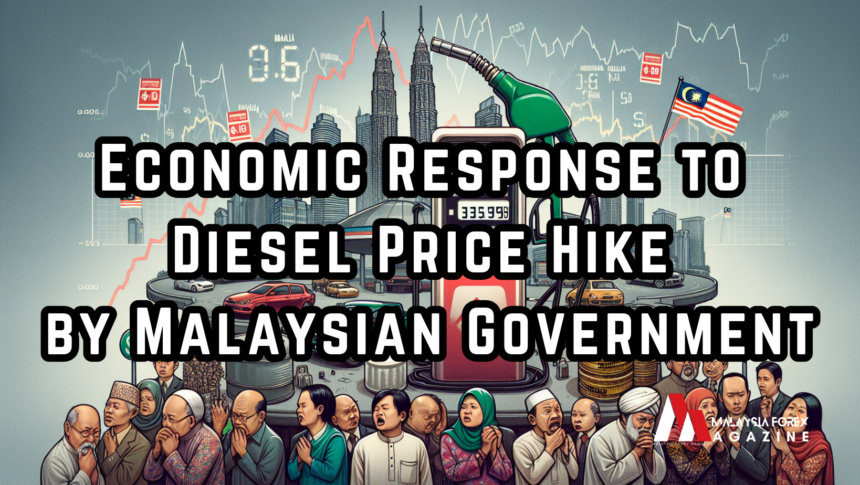The recent increase in diesel prices by the Malaysian government has significant implications for the nation’s economy. This article explores the reasons behind the price hike, its economic impact, and the government’s response to mitigate potential negative effects.
Reasons for Diesel Price Hike
Global Oil Market Fluctuations
The global oil market is subject to fluctuations due to various factors such as geopolitical tensions, supply constraints, and changes in demand. Rising crude oil prices often lead to higher diesel prices, affecting countries that rely on imports to meet their energy needs.
Fiscal Policy Adjustments
Governments adjust fuel prices as part of broader fiscal policy measures. In Malaysia, the diesel price hike may be an effort to reduce subsidies and manage fiscal deficits. Subsidies can strain government finances, and reducing them is a step towards fiscal sustainability.
Environmental Considerations
Increasing diesel prices can also be part of environmental policies aimed at reducing carbon emissions. Higher fuel prices may encourage businesses and consumers to adopt more fuel-efficient technologies and practices, contributing to environmental conservation efforts.
Economic Impact of Diesel Price Hike
Inflationary Pressure
Higher diesel prices can lead to increased transportation costs, affecting the prices of goods and services across the economy. This can contribute to inflationary pressures, reducing purchasing power for consumers and increasing costs for businesses.
Impact on Transportation and Logistics
The transportation and logistics sectors are directly impacted by diesel price hikes. Increased fuel costs can lead to higher freight charges, which can subsequently raise the cost of goods transported by road. This is particularly significant for Malaysia, where road transport is a major component of the logistics network.
Effect on Agriculture and Fisheries
Agriculture and fisheries sectors, which heavily rely on diesel for machinery and boats, can also be affected. Higher operational costs may lead to increased prices for agricultural and fishery products, impacting both producers and consumers.
Economic Growth
While the immediate impact of higher diesel prices may be negative, it can also stimulate long-term economic growth by encouraging efficiency and innovation. Businesses may invest in more fuel-efficient technologies and practices, potentially leading to greater competitiveness and sustainability.
Government Response and Mitigation Measures
Subsidy Adjustments
The government may implement targeted subsidies to mitigate the impact on vulnerable sectors and populations. For example, subsidies for public transportation or direct financial assistance to low-income households can help cushion the blow of higher diesel prices.
Incentives for Renewable Energy
Promoting the adoption of renewable energy sources can reduce dependence on fossil fuels and alleviate the impact of fuel price volatility. The government may provide incentives for businesses and households to invest in solar, wind, or other renewable energy technologies.
Infrastructure Investment
Investing in infrastructure such as public transportation and efficient logistics networks can reduce the overall demand for diesel. Improved public transportation systems can provide affordable alternatives to private vehicle use, reducing the overall economic impact of diesel price increases.
Price Monitoring and Regulation
The government can implement measures to monitor and regulate the market to prevent excessive price increases and profiteering. Ensuring transparency and fairness in the market can help maintain stability and protect consumers.
Communication and Public Awareness
Effective communication strategies can help manage public perception and response to the diesel price hike. Educating the public on the reasons behind the price increase and the long-term benefits of reduced subsidies can foster understanding and cooperation.
Conclusion
The Malaysian government’s decision to raise diesel prices is influenced by a combination of global market dynamics, fiscal policies, and environmental considerations. While the immediate economic impact may include inflationary pressures and increased costs for transportation and agriculture, the government’s response can mitigate these effects. Through targeted subsidies, incentives for renewable energy, infrastructure investment, market regulation, and public awareness, Malaysia can navigate the challenges and leverage the opportunities presented by the diesel price hike.











